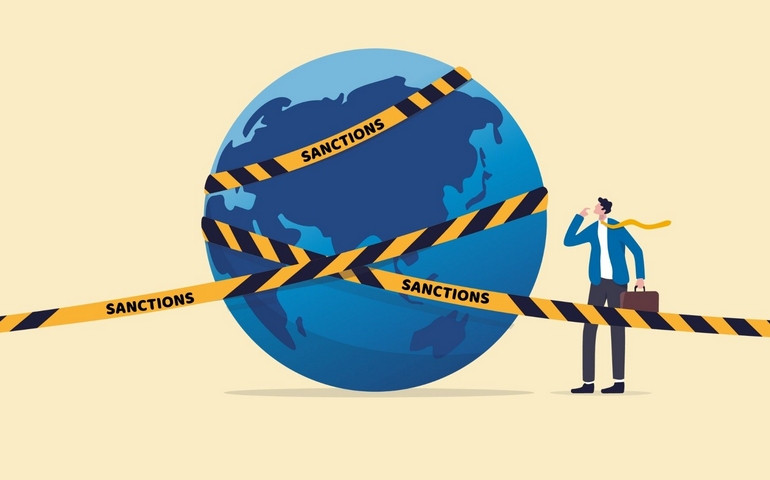Economic sanctions: impact on the global economy
 Barry Copeland
25 / September / 23
Visitors: 193
Barry Copeland
25 / September / 23
Visitors: 193
Economic sanctions are a coercive measure used to change the behavior of a state or organization. Sanctions can be imposed on trade, finance, investment or other economic sectors.
Sanctions can have both positive and negative effects on the world economy. On the one hand, they can help achieve political goals, such as ending war or violating human rights. On the other hand, sanctions can lead to economic shocks that can affect both the target country and other countries.
Positive impact of economic sanctions
The positive impact of economic sanctions can be as follows:
- Achieving political objectives. Sanctions can be an effective tool to achieve political goals such as ending a war or violating human rights. For example, sanctions imposed on Iran in 2015 led to the resumption of negotiations on Iran's nuclear program.
- Reducing the threat from an aggressor. Sanctions can reduce the threat from an aggressor by limiting its access to resources. For example, sanctions imposed on Russia in 2022 had a negative impact on its economy and led to a reduction in military spending.
- Supporting democracy and human rights. Sanctions can be used to support democracy and human rights in other countries. For example, sanctions imposed on Belarus in 2020 put pressure on the regime of Alexander Lukashenko and promoted free and fair elections.
Negative impact of economic sanctions
The negative impact of economic sanctions can be as follows:
- Economic shocks. Sanctions can lead to economic turmoil in the targeted country, which can lead to increased unemployment, inflation, and poverty. For example, sanctions imposed on Cuba in the 1960s led to recession and economic decline on the island.
- Redistribution of damage. Sanctions can lead to the redistribution of damage to other countries that are linked to the target country. For example, sanctions imposed against Russia have led to higher energy and food prices, which have had a negative impact on the economies of many countries.
- Increased tensions. Sanctions can increase tensions between the target country and other countries. This could lead to an escalation of conflict and further worsen the situation.
Impact of economic sanctions on the global economy
Economic sanctions can have both positive and negative effects on the global economy. In general, the effects of sanctions depend on specific circumstances such as the purpose of the sanctions, the scope of the sanctions, and the reaction of the target country.
In the short term.
Economic sanctions can lead to lower economic growth in the target country and other countries that are linked to it. This may lead to increased unemployment, inflation and poverty.
In the long term
Economic sanctions may lead to structural changes in the target country's economy. This may lead to a reduction in the country's dependence on imports, development of new industries and enhancement of national security.
Conclusion
Economic sanctions are a powerful tool that can have both positive and negative effects on the world economy. When deciding to impose economic sanctions, it is necessary to carefully evaluate all possible consequences.

